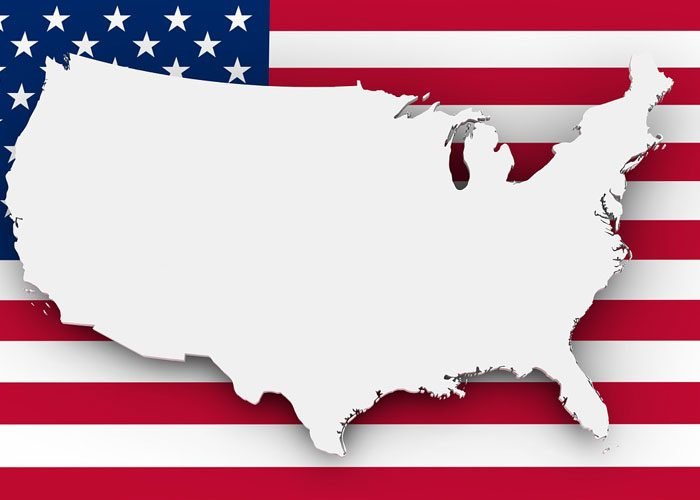Popular tags:
13
Feb
What are your rights at the U.S. fringe/border?
Is it permitted to be asked some information about your religion or have your cell phone and web-based social networking accounts inspected?
Reports of Canadian subjects being denied section to the United States in the wake of confronting inquiries concerning their Muslim confidence and Moroccan legacy are bringing up issues about what rights Canadians have at the fringe/border.
CBC looked for answers from common freedom advocate, an immigration and refugee’s legal counselor, and a representative from the U.S. Traditions and Border Protection Agency in its scope of those episodes this week.
This is what they stated:
What rights do Canadians have when they exhibit their travel papers to a U.S. customs officer?
“In overall, the U.S. has a lot of circumspection on how will give individuals access to the nation… When you’re at the border, courts in both countries have discovered that your rights are altogether smaller in degree. Along these lines, for instance, your entitlement to be free from a hunt by a cop at the fringe/border: They have a considerable measure of watchfulness to look your vehicle and to seek the things you carry crosswise over with you at the border.”
— Caily DiPuma, acting case chief, B.C. Common Liberties Association
“Each [U.S. Customs and Border Protection] investigation is unusual, and officers assess various components, including interviews, archives, record checks, and, in a few occurrences, the explorer’s things…
“Guests have the weight of setting up that they are permissible to the U.S., or are qualified for the immigration status they look for.”
— U.S. Customs and Border Protection FAQ
Do fringe/border officers have the privilege and right to get some information about one’s confidence?
“They are qualified for soliciting different types of inquiries, including your political association and your aim for making a trip to the nation. The question about religion appears to annoy — at any rate it ought to insult — your general feeling of non-biased sort of lead by the administration. Be that as it may, yes, they are qualified for make inquiries. So without having the capacity to show a legitimate biased expectation by the question, surely they’re ready to inquire.”
— Caily DiPuma, B.C. Common Liberties Association
“If [border guards] are worried that somebody will outstay, or work wrongfully, or has a criminal record or has motivations to trust the individual is a security danger, they have the privilege and the obligation to keep people from entering. In any case, if it’s simply on the premise of religion or political perspectives… If somebody was coming into Canada and the Canadian Border Services Agency denied passage to a man given their religion or their political views that could be tested in the courts.”
— Mitchell Goldberg, president, Canadian Association of Refugee Lawyers
“CBP does not segregate on the section of remote nationals to the United States in light of religion, race, ethnicity or sexual introduction.”
— David Long, representative, U.S. Traditions and Border Protection
Quebecer Fadwa Alaoui has requested her cell phone and the secret key — can fringe/border guards do that?
“She could have declined to do as such, yet the outcome would have been that she would not have the chance to enter the [U.S.]. — Caily DiPuma, B.C. Common Liberties Association
“They do have the privilege, if there is justification for it, to seek and to cross-examine, even seize cell phones and look at the substance. Be that as it may, it is impossible on a biased premise.”
— Mitchell Goldberg, Canadian Association of Refugee Lawyers
Shouldn’t something be said about online networking passwords?
“On the off chance that that kind of control is sanctioned and [travelers] are required to give passwords or different things identified with their online networking accounts, individuals will indeed need to begin considering whether they need to keep on traveling over the outskirt. What’s more, from the Civil Liberties’ point of view, the greatest concern is that individuals will start to self-blue pencil what they say via web-based networking media due to the worries about their capacity to travel.”
— Caily DiPuma, B.C. Common Liberties Association
From a U.S. Traditions and Border Protection Office FAQ
Could a solitary or “maverick” officer settle on one-sided and erroneous choices; for instance, deny passage to a voyager on his or her own?
CBP personnel decisions are cross-checked by bosses and larger amount directors for audit. Albeit bleeding edge officers do have some prudence in doing their obligations, they at last work with a group of staff inside levels of leadership build to accomplish CBP’s primary goal. CBP takes assertions of unprofessional or improper conduct genuinely and will research all occurrences fittingly…
Explorers are urged to talk with the Professionalism Service Manager (PSM) or a CBP chief if help is required amid the CBP freedom prepare. You have the privilege to request help and give input to CBP.



